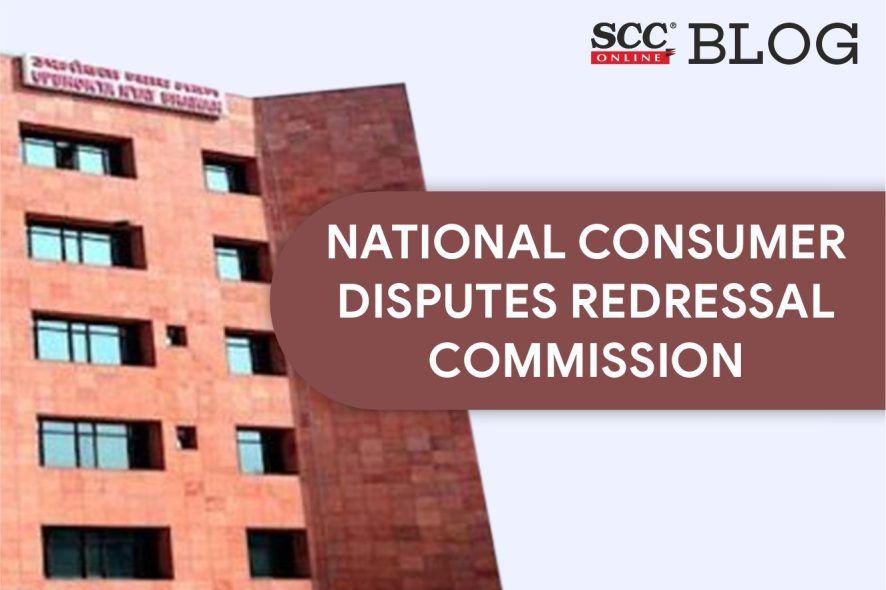National Consumer Disputes Redressal Commission (NCDRC): While deciding upon the instant complaint concerning alleged unfair trade practice followed by Flipkart of tampering with a product’s MRP, the Bench of Mamidi Christopher (President), S. Sandhya Rani and K. Venkateshwarlu (Members) observed that there is tripartite contract between the seller, service provider (herein ‘Flipkart’) and the consumer. The seller and service provider are liable for any defect, deficiency of service and unfair trade practice on the services provided or good/product sold by them. It was held that Flipkart had tampered with the original MRP of the product (herein ‘oil sachet’) and charged an amount more than the MRP from the consumer, thereby illegally extorting the consumer and causing economic loss and mental agony. Flipkart’s conduct thereby falls within the ambit of deficiency in service and unfair trade practice.
Facts of the Case: Flipkart engages in providing trading/selling facilities over the internet through its website flipkart.com and mobile application- an online marketplace. Flipkart. The Complainant ordered 2 Freedom Refined Sunflower Oil pouches (1000 ml. each) from Flipkart and the order was successfully delivered on 25-04-2021. The value of the order is Rs. 480 (each oil packet cost Rs. 240), the shipping charge- Rs. 103 and total price was Rs. 583.
After receiving the order, the complainant discovered that Flipkart was selling the product at a price which was more than the MRP. The MRP was wiped off the products, however the complainant stated that the MRP of the oil pouches was Rs. 170, while the complainant had to pay Rs. 240 (total Rs. 480) for each oil pouch. As per the complainant, Flipkart in total collected extra Rs. 140/- on MRP.
Contentions
The complainant submitted that wiping -off the MRP amounts to an unethical and unfair trade practice which also amounts to deficiency in service. The complainant further stated that due to the sufferings caused by COVID-19 it has become very hard to meet basic needs; but the E- Commerce portals are raking in huge cash by selling more than MRP.
Per- contra, Flipkart denied the allegations and contended that the 2017 Amendment in Legal Metrology (Packaged Commodity) Rules, 2011, provides that an E-Commerce entity shall ensure that all monetary declarations as specified in the Rules shall be displayed on the digital and electronic network used for e-commerce transactions. The responsibility for the correctness of such declaration shall lie with the manufacturer, the seller or the importer. It was submitted that a market-place model e-commerce entity, such as flipkart.com, has been exempted by the Rules from any responsibility regarding correctness of the information provided by the seller.
Flipkart further contended that it only acts as an intermediary through its web interface and provides a medium to various sellers all over India. It was argued that these sellers are separate entity being controlled and managed by different persons/stake holders; and Flipkart directly or indirectly does not sell any products. All the products on Flipkart platform are sold by third party sellers who avail the online market-place service so provided, and the terms are decided by the respective sellers only.
It was submitted by Flipkart that the contractual/commercial terms include price, shipping cost, payment method, payment terms, date, period and mode of delivery, warranty related to products and services and after sale services related to sales and services. Flipkart does not have any control or does not determine or advise or in any way involved in the offering or accepting of such contractual, commercial terms between the buyer and seller.
Observations: Upon perusal of the facts and contentions, the Commission considered that whether there existed a deficiency in service and the extent of such deficiency.
The Commission perused the relevant provisions of Consumer Protection Act, 2019 defining “deficiency”, “unfair trade practice” and the relevant provision of Consumer Protection (E-Commerce) Rules, 2020.
It was observed that Unfair Contract means a contract between a manufacturer or trader or service provider, having such terms which causes a significant change in the rights of such consumer, thereby imposing on the consumer any unreasonable charge, obligation or condition which puts such consumer to disadvantage. The Bench pointed out that the Opposite Parties are the agents who sell the product, and are duty bound to ensure its quality and if the product is found defective, agent shall be vicariously liable for the loss caused to the purchaser, along with the manufacturer of the product.
The Commission pointed out that Opposite Parties are in contract and agreement with the manufacturer who are service providers through the e-commerce entity and are bound by the contract between the manufacturer, product seller and the consumer and therefore must provide the information and details about the product to the sellers offering goods.
Decision: With the afore-stated observations, the Commission held that the Opposite Parties have not performed their duties of sellers on market-place as laid down in the Consumer Protection E-Commerce Rules, 2020.
The complaint was allowed partly, and the Opposite Parties were directed jointly and severally to return the additional extra charge of Rs. 140 and to pay an amount of Rs. 50,000 towards compensation and Rs. 3,000 towards costs, to the complainant.
[Shaikh Umar Farooq v. Flipkart Internet Private Limited, 2022 SCC OnLine NCDRC 519, decided on 26-07-2022]
Advocate who appeared in this case :
A. Narendar Rao, Advocate, for the Opposite Party No. 1,
*Sucheta Sarkar, Editorial Assistant has prepared this brief.







